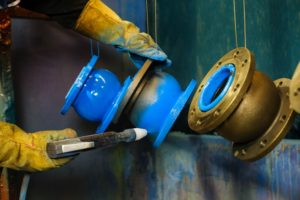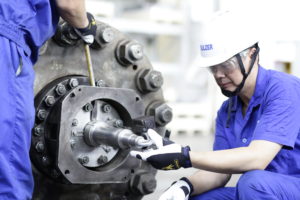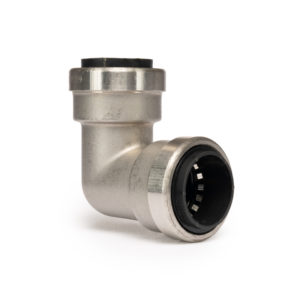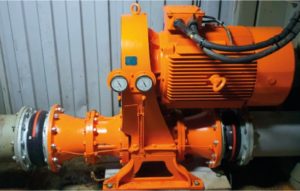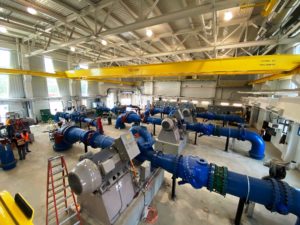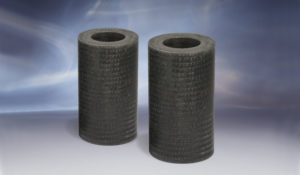Walkersele® OSJ-2 Cuts Downtime and Maintenance Costs on Rotary Plant
Split-type lip seals from James Walker are now easier to join around rotary shafts, using a modified fitting kit for the patented Walkersele OSJ (On-Site Joining) technique.
An on-site joined Walkersele performs like a fully moulded endless lip seal — but is installed without the wasteful plant downtime and maintenance costs needed to strip-down a shaft and gland assembly to gain access.
Designated Walkersele OSJ-2, the new kit has been developed in close liaison with longterm users of the technique. Each kit contains the correct size of fabric-backed Walkersele, from 60mm to 2000mm diameter, plus all components and consumables needed to form reliable bonded join. The only special tool required is a hot air gun that can also be supplied by James Walker.
Explained James Walker head of technology, David Edwin-Scott: “We have improved many of the fitting components — such as clamping band, temperature indicator and locating jig — to make our On-Site Joining technique easier to use under difficult maintenance conditions, particularly with larger diameter seals.”
Walkerseles are used worldwide to protect bearings on rolling mills, power stations, marine transmission systems and stabilisers, sugar refineries, pulp and paper plant, rotary kilns and process mixers. They retain lubricant in a bearing assembly and prevent finished products being contaminated with oil and grease. They are also used to prevent the ingress of liquid or solid contaminants.
Until Walkersele OSJ was launched in the early 1990s, the only viable way to fit a lip seal without dismantling a shaft or gland was to use a split-type seal and then either abut the ends or vulcanise the join. Abutted joins reduced the sealing performance when shaft dynamics were severe, and on-site vulcanising was expensive as complex jigs and special skills were needed.
Source: James Walker Australia Pty Ltd

